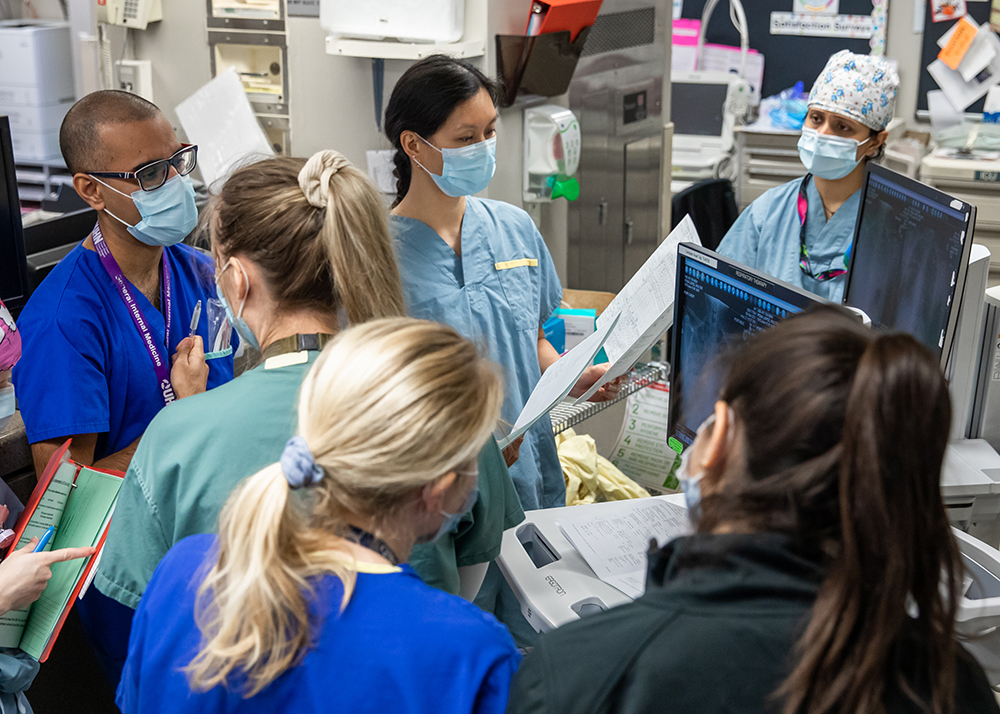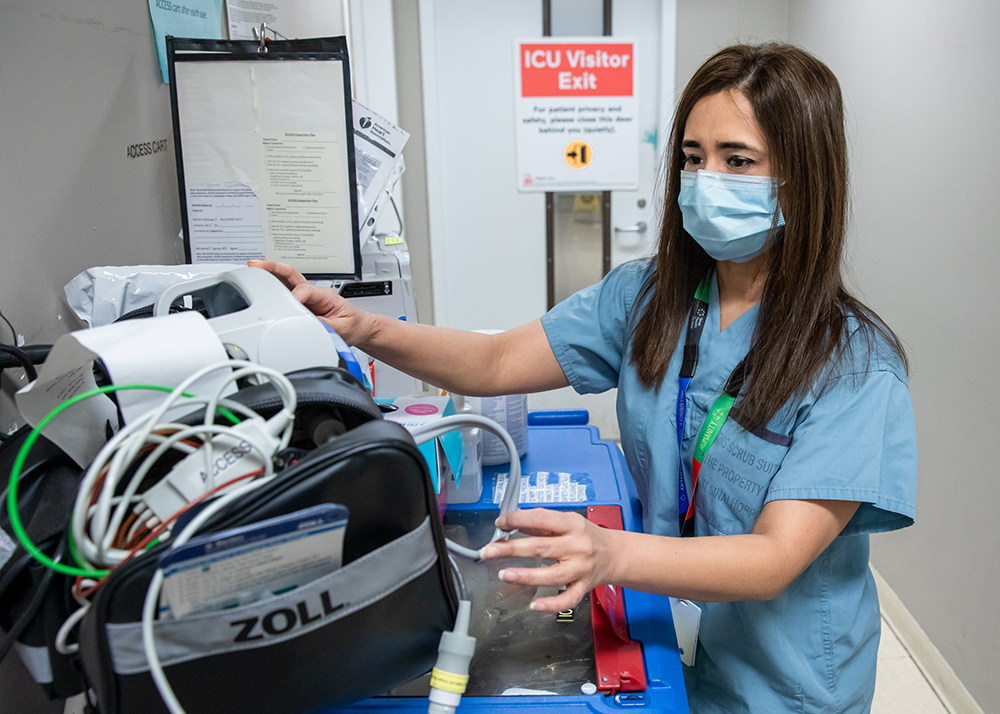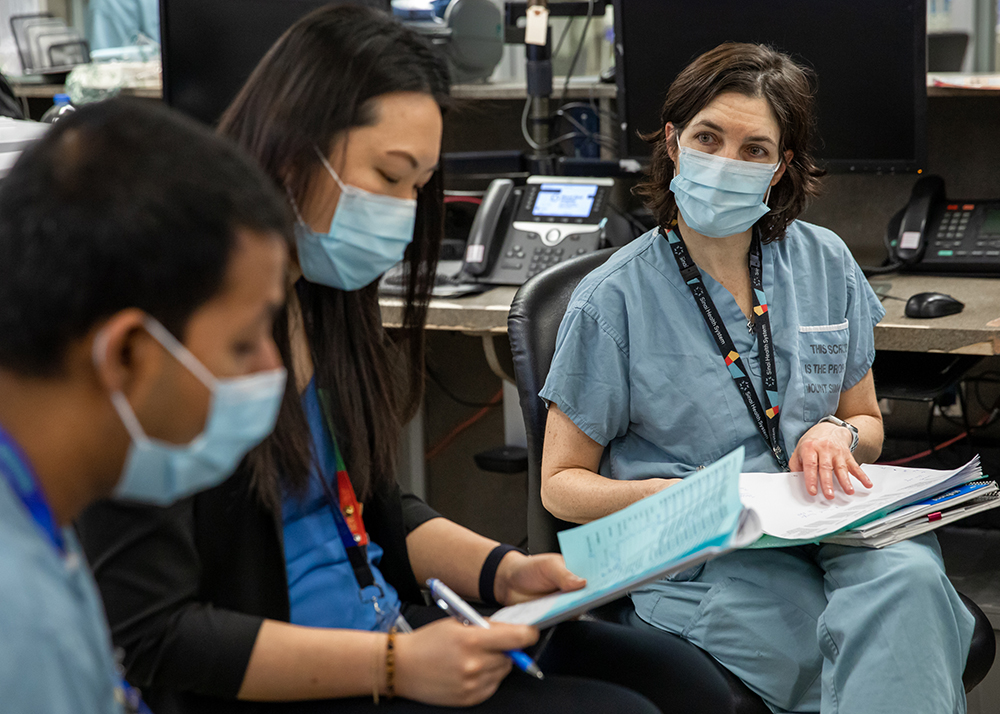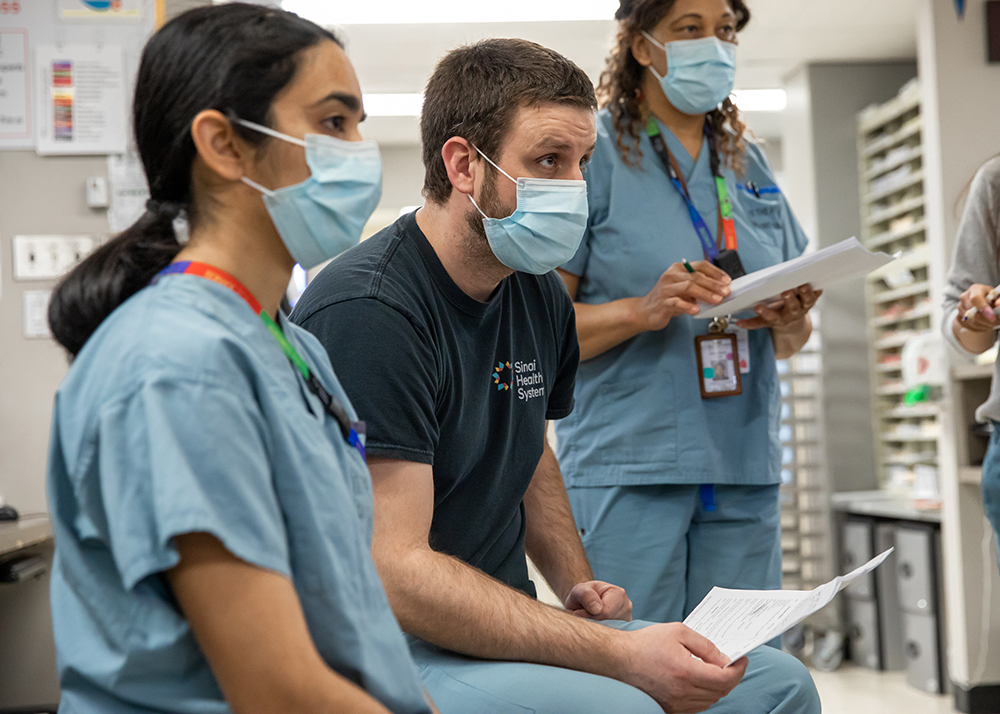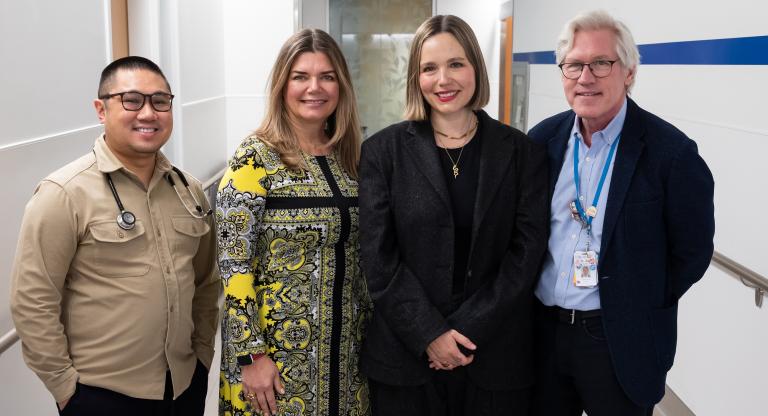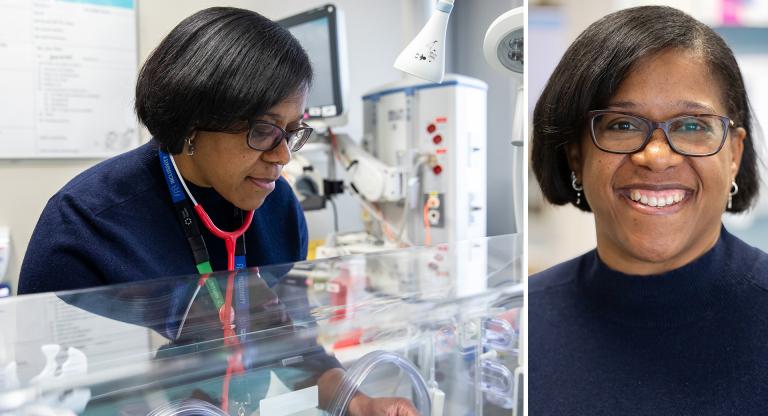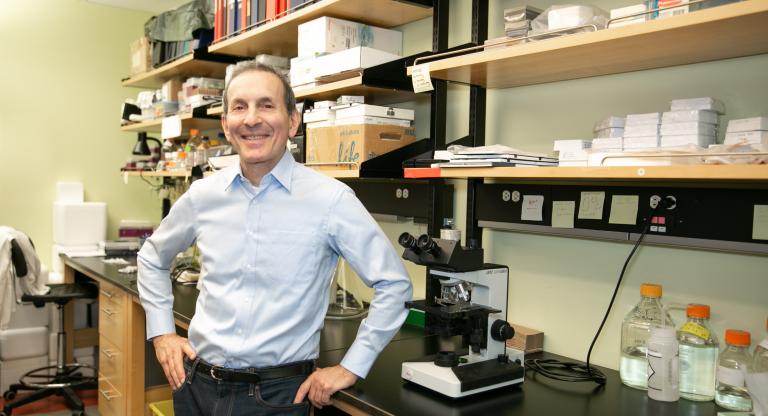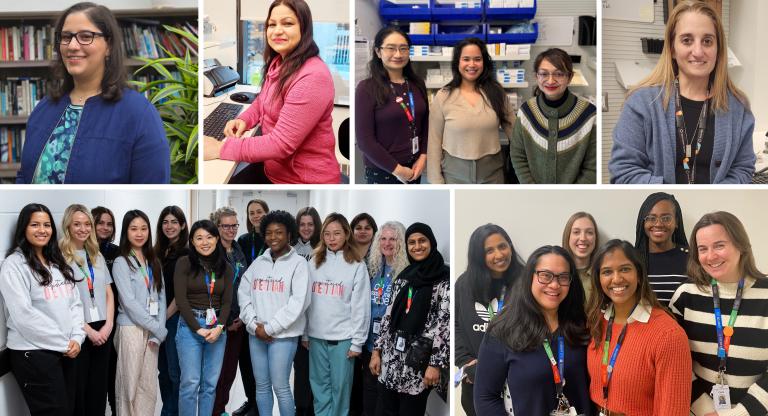Teamwork and tenacity: reflections on the pandemic from the ICU
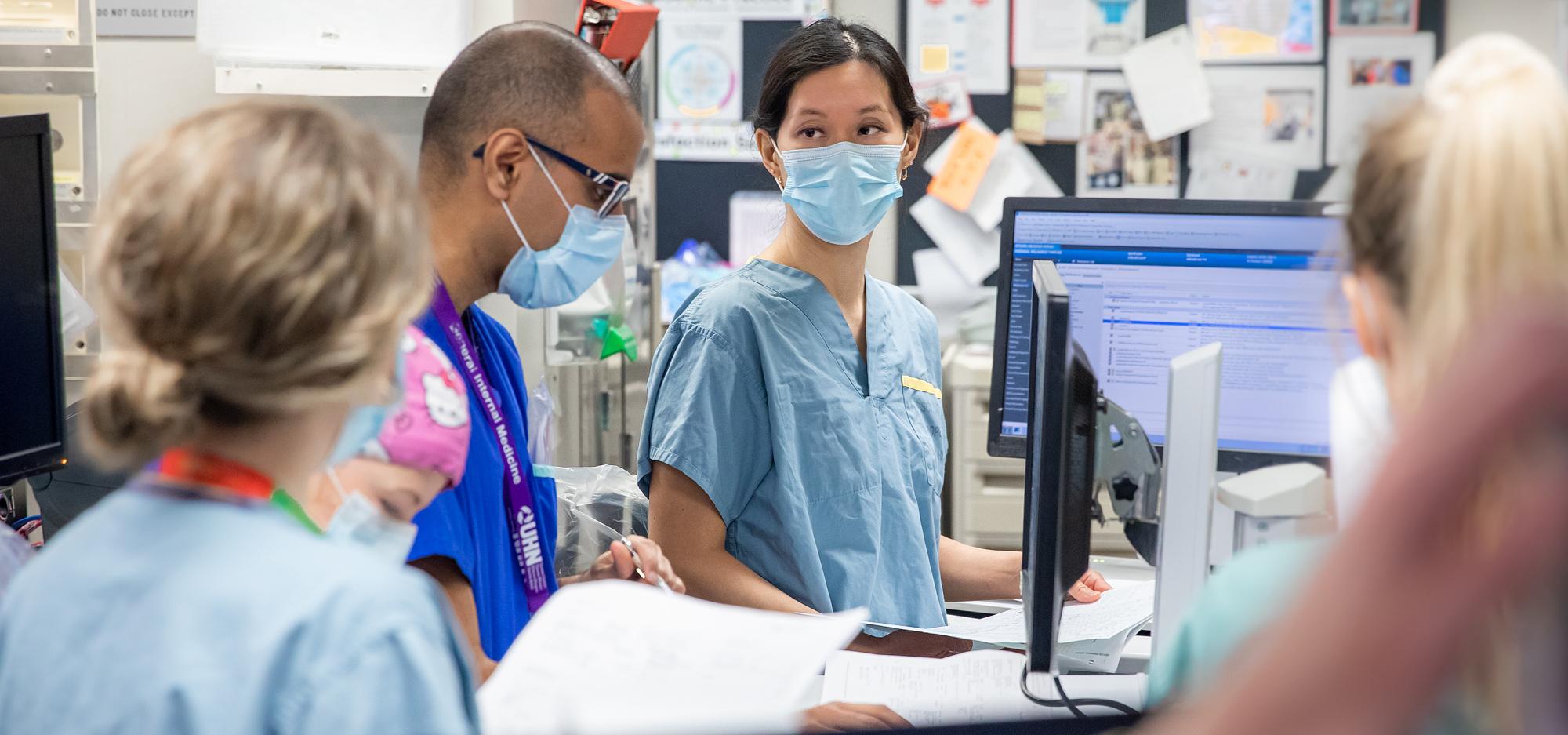
In early March 2020, Mount Sinai Hospital’s Intensive Care Unit (ICU) started receiving patients acutely affected by the COVID-19 virus. It has been one year since the global pandemic was declared. Since then, the team in the ICU has been there for patients and their essential care partners, as well as for each other. We asked them to share, in their own words, some reflections from the last year.
Thank you to the ICU, and all of our employees, physicians and learners for their continued commitment to our purpose of caring, creating possibilities and offering hope.
Salima Sadiq, Nurse
“I have been an ICU nurse for many years. No one expected this would last this long but we stood together supporting each other and knowing we were all in the same situation.
We have seen patients very sick with COVID-19 … from 20-year-olds to 90-year-olds.
"No one expected this would last this long but we stood together supporting each other and knowing we were all in the same situation."
It has been hard for families not being able to visit the way they used to. They are understanding about this and are so thankful when we can help them see or speak with their loved one on the computer tablet. It gives us satisfaction to connect them, especially when their family member is very ill.
Since the pandemic began, the personal protective equipment (PPE) is evolving. We work full 12-hour shifts, wearing PPE. It is very difficult. You get very dehydrated and sometimes you’re spending up to an hour at a time in rooms, taking care of patients.
It’s intense at work and at home. Sometimes you feel isolated, but our ICU team works as a family and we help each other out. Small gestures from our colleagues are really appreciated. It is a great team to be a part of.
The community, my neighbours, they are so appreciative of health-care professionals. They thank us, wherever we go, for what we do. That means a lot.
One year has passed. We still hope for the light at the end of the tunnel.”
Dr. Christie Lee
“It’s been a tough year for front-line health-care workers. But it’s also taught us many things. Over the past year I have witnessed our team do so many amazing things.
"In these moments, I saw the silver lining. To see firsthand the courage and resilience of our teams reaching out to patients and being there for them."
Pre-COVID-19, we had a very open setting in our ICU for visitors. It’s only more recently that hospitals have allowed patients’ essential care partners to be with them. We are caring for very sick patients and in the early months of the pandemic, we would be there for our patients if their family members could not. This was so important for our patients, and their families… to know that they were not alone.
In these moments, I saw the silver lining. To see firsthand the courage and resilience of our teams reaching out to patients and being there for them. Our staff were sympathetic and taking on multiple roles beyond their clinical duties.
Families call to tell us how much they appreciate the care their loved one received. These warm words continue to mean so very much to us, and really support us through these intense and challenging times.”
Andrea Moore, Social Worker
“You feel you can take a breather, but then you’re holding your breath waiting to see what it’s going to be like in a few weeks.
"You feel you can take a breather, but then you’re holding your breath waiting to see what it’s going to be like in a few weeks."
I’ve been working as part of the ICU team for a long time. It’s the tight-knit team that pulls me through. We ask each other, ‘How are you? How are things at home?’ That checking-in with each other makes me feel supported and I try to do the same to help my colleagues.
Families appreciate the team’s efforts. With critically-ill loved ones, our nurses, social workers and spiritual care providers help with virtual contact. Though not ideal for very difficult moments, they are there, holding the computer tablet so families can see their loved ones.
I’m used to having face-to-face meetings with families. Now I am there for them through virtual meetings. Families are working through the stress and grief. Even if the outcome was not what they hoped for, they still take the time to ask us how we are doing and if we are safe. It moves you that they take a moment to think about us.
Nick Bradley, Physiotherapist
“Everyone was simultaneously learning about who the virus affects and the toll it was taking on patients. We were all realizing we were dealing with the same new experiences, and I think that kind of created empathy across multiple professions, and galvanized us to keep going in a way.
"As challenging as these moments have been, seeing how far these people have come in their recovery has been very rewarding professionally and personally."
You’re always aware that this has been stressful on others, so you reach out and help your colleague as much as you are able to, whether that’s with physical help to care for a patient, or to be as empathetic as you can be while listening to their concerns.
From a physio perspective, we found that the lower respiratory reserve and level of awareness caused by COVID, left patients unable to participate with activity sometimes, so it was about finding the appropriate time and type of activity to initiate and progress. But there are some people who, while very sick in the beginning, are becoming well again and beginning to move. We got some people to the point where they could sit up in bed or stand up and step a little bit. Then you hear, once they’re in the Medicine Unit, that physio is getting the patient to walk now, and then to rehab at Bridgepoint or other facilities in the community.
As challenging as these moments have been, seeing how far these people have come in their recovery has been very rewarding professionally and personally.”
Lisa Palozzi, Respiratory Therapist
“I’ve had the most trying shifts of my career during this time. It’s my work family, this incredible team who help me through those moments. We spend many hours together. We’ve shared high and lows of emotions.
"The pandemic has taken an emotional toll in other ways too. In the beginning, we didn’t know what to expect. Many of us made life decisions to protect our families by staying apart for long periods."
Many patients with COVID-19 experience serious respiratory issues. In my role, I make sure they are getting enough oxygen and that sometimes requires inserting a breathing tube and using a ventilator.
It is disheartening to see such prolonged recovery for some patients. But then you remember the case of a very sick patient who slowly recovered. It was so heartwarming to see this patient talking on their first video call with their young kids.
The pandemic has taken an emotional toll in other ways too. In the beginning, we didn’t know what to expect. Many of us made life decisions to protect our families by staying apart for long periods.
But we bring it all together after hardship. Everybody steps up. It’s not about your job or my job. We face challenges together, and we get it done. Other team members will ask, ‘How can I help you?’ ‘Can I do something for you?’
And if things ramp up again – we’ve done it before, and we can do it again. We’ve got each other’s backs.”









